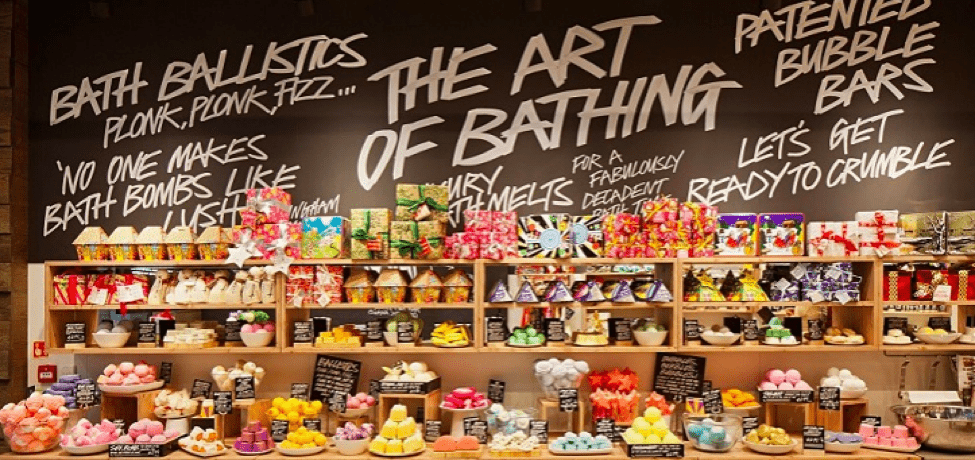Lush is a cosmetics company which prides itself on being an eco-friendly and sustainable brand. Many are under the impression that Lush products are, therefore, almost good enough to eat due to the natural ingredients that they use. However, there have been several controversies surrounding the company which erodes their credibility as an eco-friendly, ethical brand.
Firstly, in 2009, Lush claimed to be palm-free. On the surface, this would have been an excellent direction for the company to move in due to the significant amount of ethical problems associated with palm oil (deforestation, the degradation of entire ecosystems, orangutans dying etc.). But unfortunately, this was proven not to be true. To this day, they are still not palm free. Their justification for not being palm-free is relatively credible, stating that the issue of palm oil is a “tricky one”. They are also allegedly trying to cut out palm oil where possible. Some critics of Lush, however, argue that their continued use of palm oil to this day shows how the company is ‘greenwashing’ as a business tactic to appeal to a greater audience.
Another issue with Lush is their use of problematic chemicals in some of their products. Yes, they are known for generally selling sustainable, natural products but a significant proportion of their stock does contain questionable chemicals in order to extend their shelf life. Harmful preservatives, including parabens and ‘parfum’, are in their ingredients lists. This is predominantly down to the fact that Lush’s products are often water-based, which require preservatives (harsh chemicals) to prevent them from rapidly spoiling.
On Lush’s website, they state that “no more than two synthetic preservatives” in any product can be found. The problem here is that even though the ingredients list several harsh chemicals, their packaging claims that the products are ‘natural’. The company has come under fire for this ‘unacceptable’ behaviour since there are so many completely natural brands available now and it is harder than ever before to justify the continued use of these types of chemicals.
Lush have also recently been criticised after an ex-employee spoke out about the horrible treatment she experienced in the workplace. Twitter user @MondayFake stated that “every -and I’m not exaggerating- member of staff either had a breakdown or ended up on antidepressants” while working for Lush. They went on to describe the poor working conditions, poor pay and harsh treatment by management. Over 66,000 users have now liked the thread.
While these factors do raise alarms, it is important to say that the fact that they don’t test on animals, 90% of their packaging material is recycled and they regularly fundraise for charity are all very positive features of the business. Nevertheless, it is difficult to ignore the inconsistencies and, arguably, the hypocrisy of the company. It raises the question: should companies be allowed to market themselves as ethical, if a number of their actions refute this claim? The answer to this is most unclear. In the case of Lush, it would seem that their lack of transparency in terms of their palm oil use and the harsh chemicals added to their products undermines their credibility as an ethical brand; not to mention the vast number of reports of poor working conditions by employees.
Charlotte Loughlin
Twitter thread: https://twitter.com/MondayFake/status/1195255732695961603?s=20
Image: MDS

